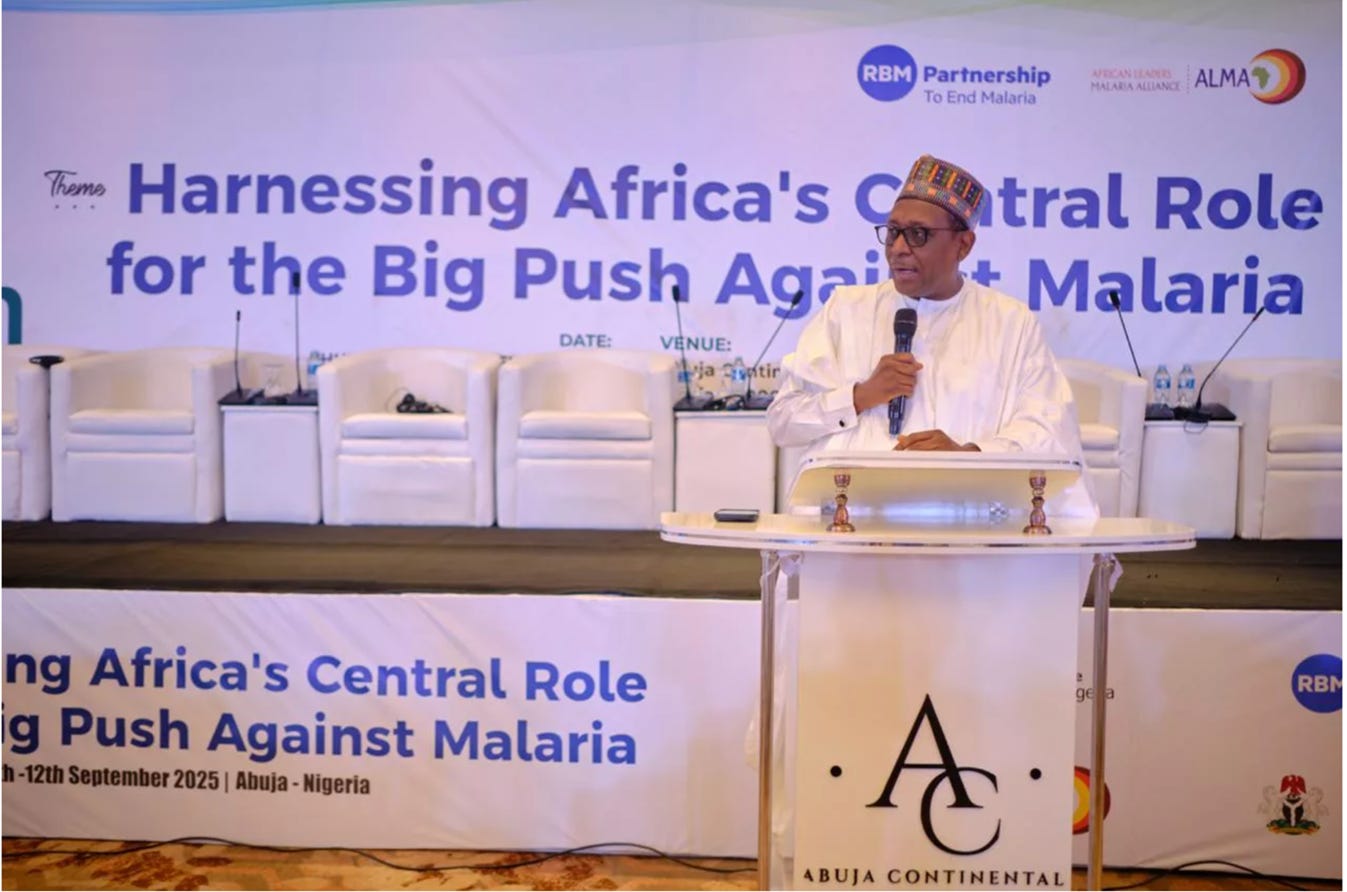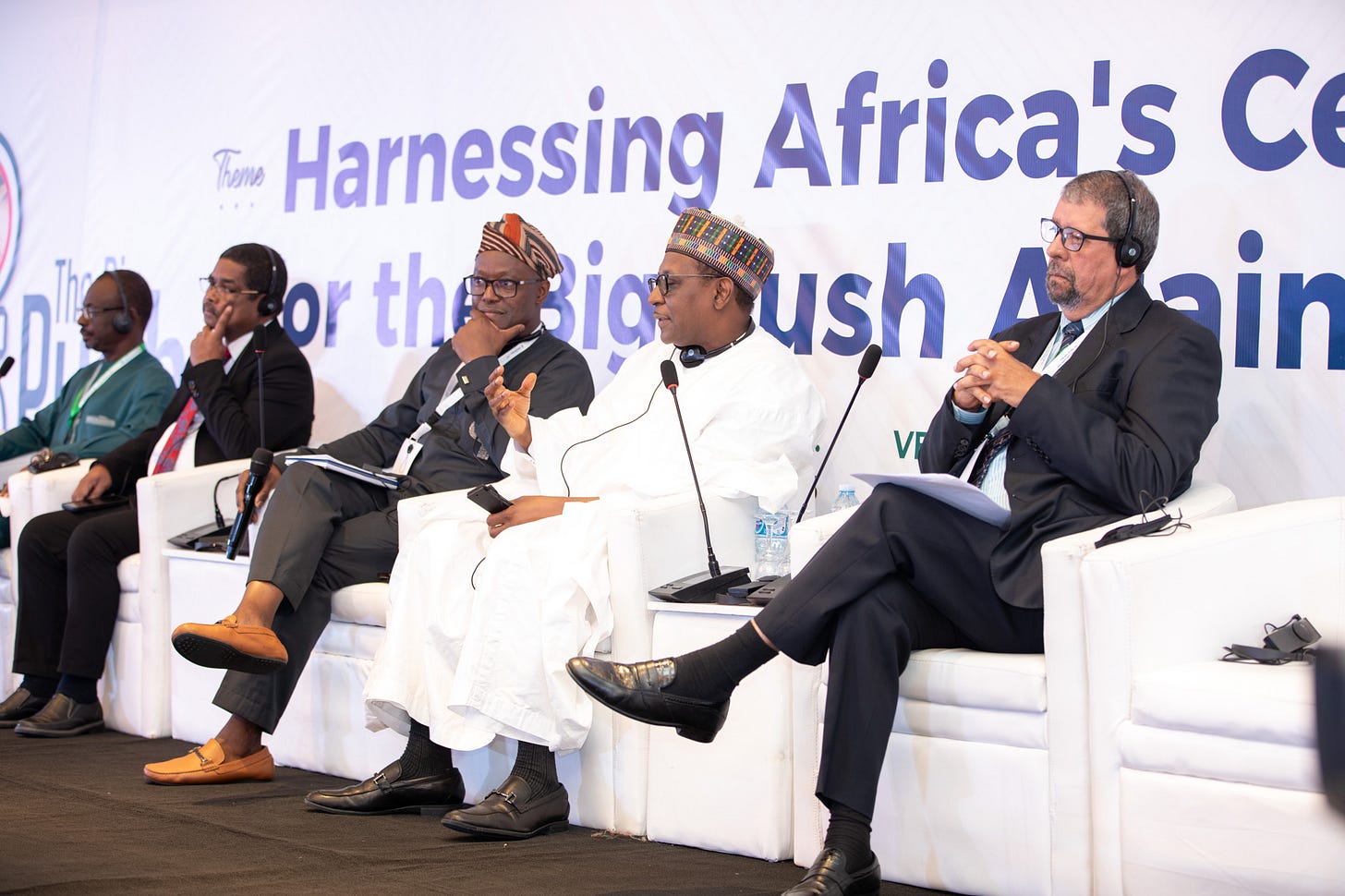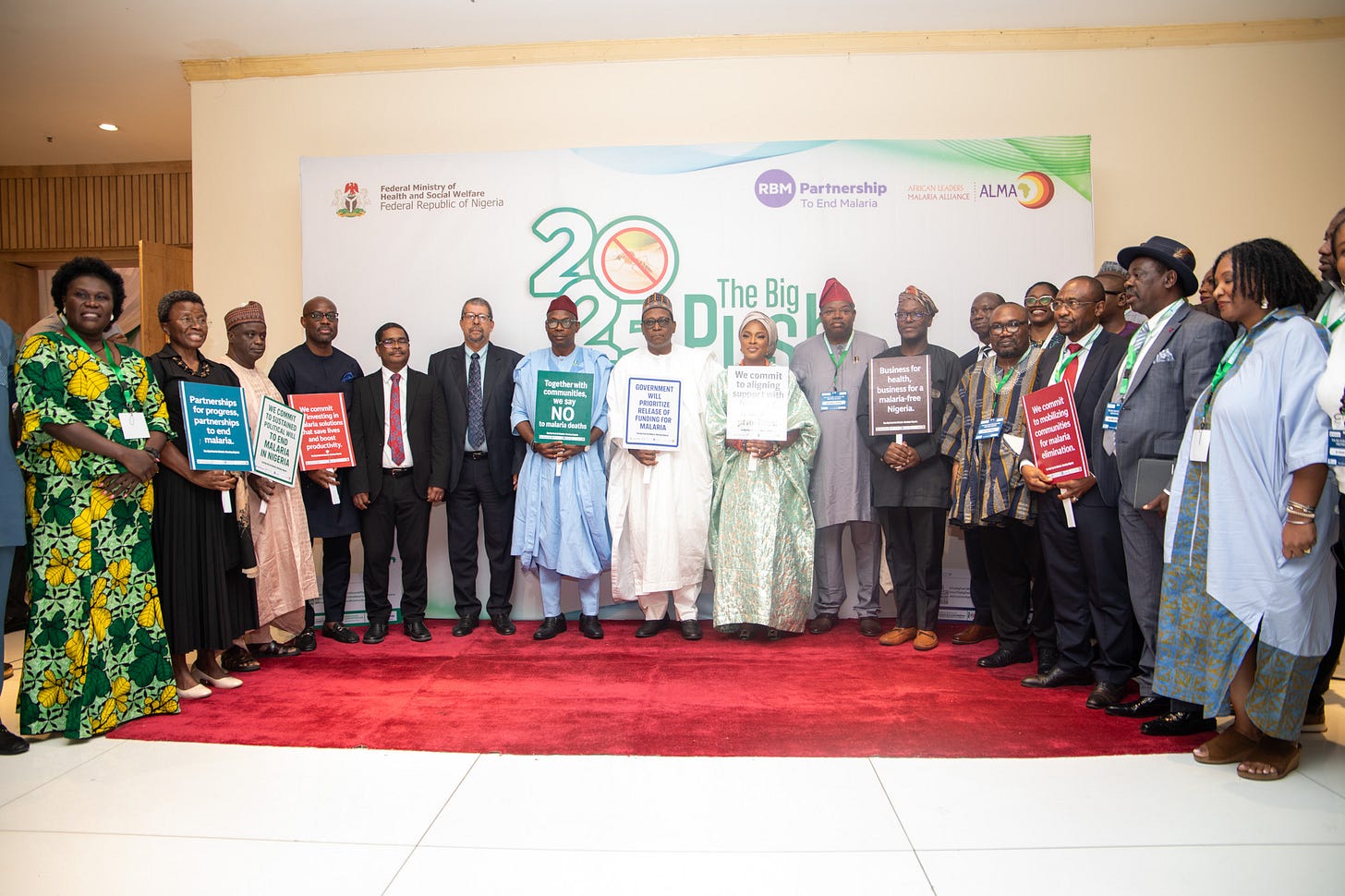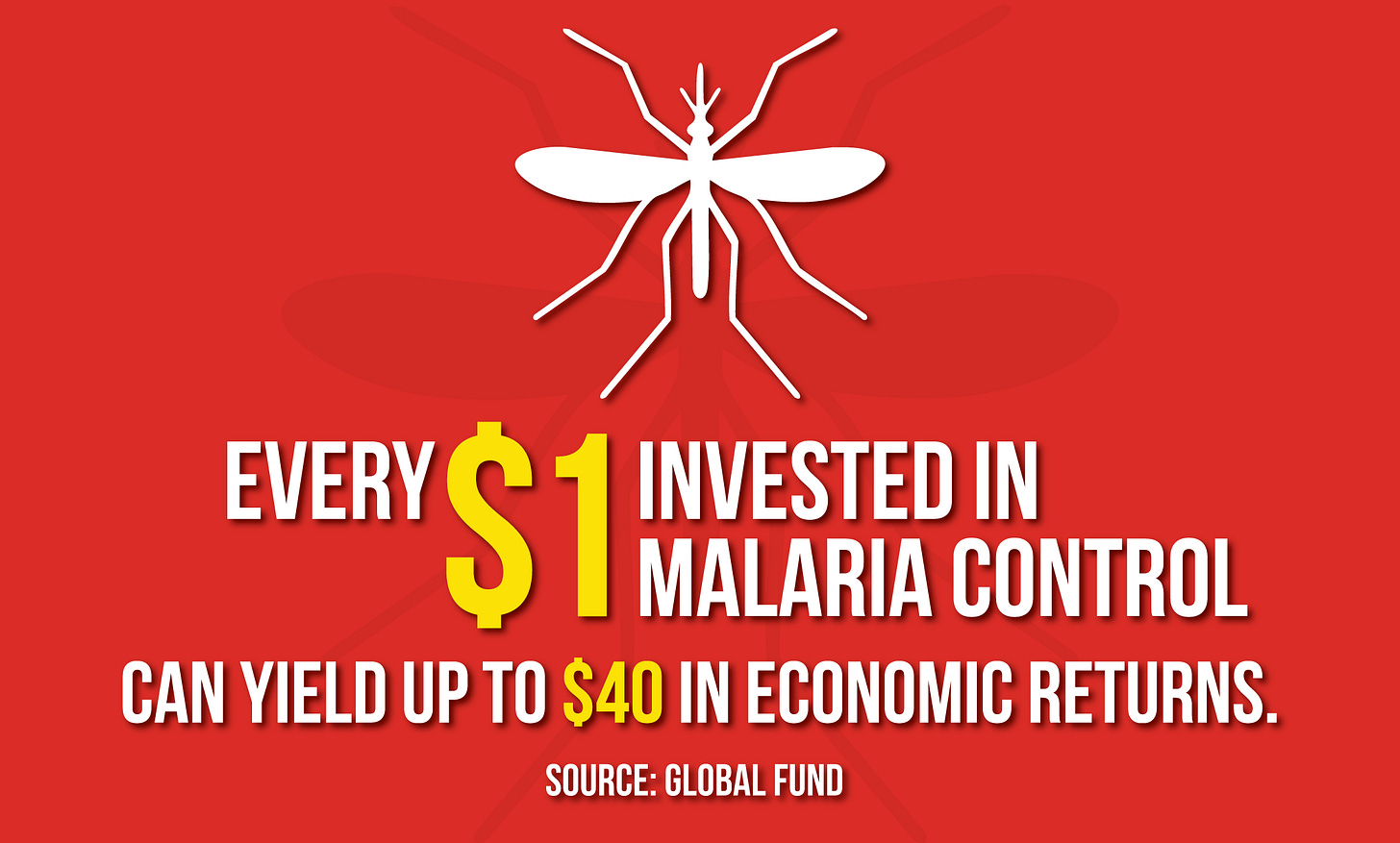On 11–12 September 2025, Abuja hosted Africa’s malaria summit. Ministers, national programme managers, legislators, private sector leaders, researchers, and civil society convened under the RBM Partnership to End Malaria, discussing the theme “Harnessing Africa’s Central Role for the Big Push Against Malaria”. With Africa bearing 94% of global malaria cases, the meeting declared the continent must lead the Big Push to end malaria.
In 2023, Africa recorded 263 million malaria cases and nearly 600,000 deaths, with Nigeria alone accounting for 27% of cases and 31% of deaths. “Behind these numbers are people, mostly young children. That means about 1,600 children are dying every single day. It is the equivalent of five jumbo jets crashing daily. In 2025, that is unacceptable. We need a real Big Push against malaria, one that is about action, not just another paper or strategy.” said Dr Michael Charles, CEO of the RBM Partnership to End Malaria.
Beyond statistics, malaria continues to rob Africa of its pregnant women, children, and workers, draining productivity and slowing economic growth. Yet, economists remind us that every US$1 invested in malaria control generates up to US$40 in economic returns, proof that ending malaria is not only a health imperative, but also a sound financial strategy.
Lessons from across Africa: proof that progress is possible
Cabo Verde’s malaria elimination in 2024 stands as Africa’s newest success story. Dr Adilson DePina, Head of the Malaria Elimination Programme explained that the country reached malaria-free status by committing over 70% of programme costs through domestic financing, implementing rigorous case-based surveillance with 24-hour notification, and multisector collaboration that engaged tourism, immigration, and environmental agencies. At the high-level meeting in Abuja, Health Minister Dr. Jorge Figueiredo reminded participants “This is our third elimination, and we know how fragile success can be. Sustained vigilance and financing are the only way to keep malaria away.”
Building on this momentum, Lagos, is demonstrating that Africa’s largest megacity can bend the curve. Malaria prevalence dropped to 2.6% in 2023, with emerging data suggesting it is now below 1%. Through mandatory testing reforms, stronger integration between public and private providers, and the introduction of a “Malaria Elimination Incident Commander” model, Lagos is showing that elimination is not a distant dream but an achievable goal.
Progress remains uneven across the continent. Dr Albert Zeh Meka, Permanent Secretary of Cameroon’s National Malaria Control Programme, noted that malaria continues to take a heavy toll, with parasite prevalence at 26% amid an unstable funding landscape. Yet the country’s strategy of micro-stratification, parliamentary advocacy for malaria budgets, and a national interministerial mechanism shows resilience. “We cannot rely on external donors alone. Our parliament and our treasury must be at the centre of malaria financing,” he stressed.
These experiences illustrate the power of Subnational Tailoring (SNT), using data to stratify malaria risk at district or state level and directing targeted interventions, matched with financing and human resources to turn malaria strategies from broad pledges into measurable outcomes.
The legislators’ panel which brought together parliamentarians from Nigeria, Uganda, Cameroon, Ghana, and Rwanda discussed the Coalition of Parliamentarians to End Malaria in Africa, (COPEMA), which aims to drive domestic appropriation, cross-party accountability, and peer learning. As Ugandan parliamentarian Honourable Rose Obigah reminded attendees, “We must legislate not just for nets and drugs, but for budgets and delivery. Parliament is where malaria promises live or die.”

Equally insightful was the ministerial panel, which included leaders from Cabo Verde, Burkina Faso, and the African Union. They challenged peers to prioritise funding for domestic programmes, institutionalise real-time surveillance, and integrate malaria within broader health systems. Cabo Verde’s cautionary tale of resurgence served as a reminder of the fragility of gains: without vigilance and sustained financing, victories can vanish.
Financing remains the greatest obstacle to progress. Presentations made on the second day by Prof Gbenga Mokuolu, Technical Adviser to Nigeria’s Coordinating Minister of Health and Social Welfare, revealed that less than 50% of the funds required for malaria control in Africa are available. Nigeria alone faces a gap of US$696 million between current financing and what is required for full-scale interventions. Without bridging this chasm, even the best strategies risk faltering.
The event highlighted innovative financing strategies for malaria control across Africa, including:
Domestic commitments first—ring-fencing malaria allocations in national and state budgets, with quarterly public reporting.
Efficiency through integration—joint campaigns for malaria, immunisation, and nutrition to reduce costs and reach the same households.
Private sector partnerships—through national End Malaria Councils, blending philanthropy with corporate social responsibility and health insurance.
Regional procurement and local manufacturing—to stabilise supply chains, reduce costs, and build African resilience.
This demonstrates integration not as an abstract ideal, but as a practical, cost-saving and patient-centred approach.
As Nigeria’s Coordinating Minister of Health and Social Welfare Professor Muhammad Ali Pate said,
“There are not enough resources to have siloed programmes for HIV, for immunisation, for TB, for malaria. People don’t go to primary healthcare centres and say, I’m here for the malaria line, or the immunisation line, or the TB line. They go because they have a fever. Integration means using the same health worker, the same diagnostics, the same logistics and supply chains—so we save costs and meet people’s needs more holistically.”

A continental roadmap: from Abuja to 2030
Abuja’s outcome was clear: Africa must act collectively, with discipline and solidarity. The following five priorities can guide the Big Push:
Make SNT the operating system. Refresh risk stratification annually and link strata to funded intervention bundles.
Institutionalise real-time surveillance. Aim for under 24-hour case notification, district-level dashboards, and routine data audits.
Hardwire accountability. Legislators must scrutinise budgets; ministers and governors must sign delivery compacts with quarterly public reviews.
Mobilise and diversify financing. Use innovative bonds, blended finance, and private sector compacts to attract additional resources.
Integrate malaria into health systems. Align with PHC, immunisation, and MNCH to reduce waste and strengthen resilience.

Why This Matters
The Abuja meeting marked a turning point. Africa is no longer short of knowledge, examples, or leaders. Cabo Verde’s elimination proves malaria can be beaten. Lagos shows megacities can drive prevalence to zero. Cameroon demonstrates resilience under financial strain. The truth is clear: the fight against malaria cannot be won by governments alone. It demands every sector, every leader, and every community to move beyond words into action.
Governments must do more than pledge—they must budget, spend, and deliver transparently. Legislators must use oversight to ensure funds reach the frontlines, turning political promises into tangible results. National programmes should tailor strategies sub-nationally, while civil society and communities hold leaders accountable. The private sector cannot remain on the sidelines as malaria drains billions from Africa’s economy. Donors and partners must sustain catalytic financing that reinforces African leadership. Continental institutions like the African Union (AU), African Leaders Malaria Alliance (ALMA), and RBM must ensure accountability through peer review, keeping every country honest and on track.
Every actor has a role, and every actor is accountable. The road to 2030 is short, and the stakes could not be higher. A malaria-free Africa will not be handed to us, it must be built by us, country by country, community by community. Let this be our legacy: a continent that shouldered its burden, rose to the challenge, and ended malaria once and for all. The world is watching. Africa must lead from the front.



